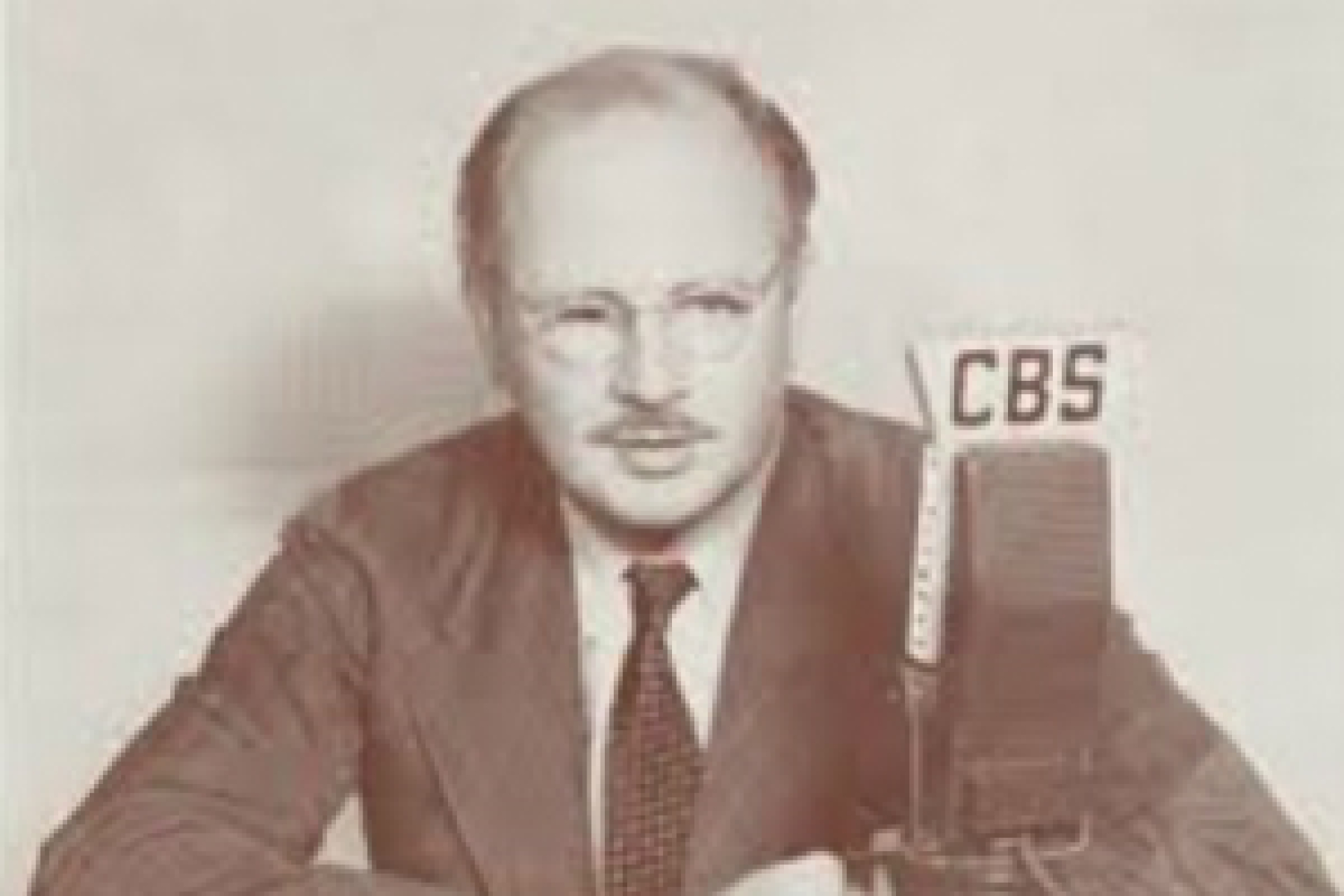My interest in learning about this time expanded after reading the book Berlin Diary, by William Shirer. His diary is a firsthand account of the events leading up to Germany’s involvement in WWII, and spans dates from 1934 through 1940, making Shirer (born 2-23-1904) thirty years old when he began documenting these events.
Shirer grew up in Cedar Rapids, Iowa where he attended Coe College. Upon graduation, his goal was to leave Iowa, so he took a job on a cattle boat to Europe and ended up working abroad for fifteen years. He served as foreign correspondent for the Chicago Tribune, covering stories in the near East where he became friends with Gandhi. Moreover, while in Paris, he became acquainted with Hemingway and Forester, who inspired his writing career even further. He tried his hand at novels, but his journalist writing brought attention to his skills as a reporter. In fact, Shirer became the first reporter to broadcast news from abroad with Edward Murrow of CBS. His radio copies required proofing by censors and often his words were stifled, making the diary a most accurate account. Shirer notes that when he left Germany to return to the United States in late 1940, he had to smuggle his notes out fearing they would be confiscated and destroyed.
I could actually feel the atmospheric pressure of concern mounting with his scoop on Germany’s annexation of Austria in 1938 and the rush of Jews trying to escape. These concerns continued to build as Shirer was able to attend speeches and rallies based in Berlin and hear firsthand from Hitler, the ‘voice of a madman.’ The invasion of Poland, followed by Denmark, Norway, and later Belgium and France unfold for diary readers in a progressively horrific way. Towards the end of his time in Germany, Shirer is eyewitness to carnage left behind, while traveling with German forces through remains of bombed out cities. It is heartbreaking to hear about loss of civilians, young and old; much less, the soldiers who were brainwashed to become war machines on a mission to destroy. The sad faces of survivors as they shuffled through the ruins were so vivid, and knowing that there was still slow and endless suffering to come. Shirer talks about the rationing of supplies, prohibition of radios, and requisition of items needed for the German Army. Justification for these attacks came through a spin on news, and false propaganda. Still Shirer held on to integrity and did his best to get out the real news on global airways. He often found himself caught in many difficult situations as he continued to battle with censors who tried to shape his words. Shirer’s decision to get out of Germany, with haste, comes after learning that the Gestapo had him under surveillance for espionage. If his escape were unsuccessful, his execution would have been forthcoming.
In looking back on those days, it is amazing to me that my own parents were even alive when all this was taking place. Remembering is important . . . we are not so far removed from trouble. As a librarian, I think now of the banning of books, or ideas, and the defense of intellectual freedom. Shirer reports on University Library of Louvain burned in 1914 by Germany in a ‘burst of fury.’ The library rebuilt (and rebooked) by donations from hundreds of American institutions of learning, now was again a burnt out shell. He looked in vain for a plaque that once hung in the great library. He remembers seeing it in 1925 when visiting in better times. The plaque read “Destroyed by German fury; rebuilt by American generosity.” Once again, history repeats itself. I understand Shirer’s shock when he related his dismay at the “desolation and contemplated this one little blow to learning and culture in much that is decent in European life.”

